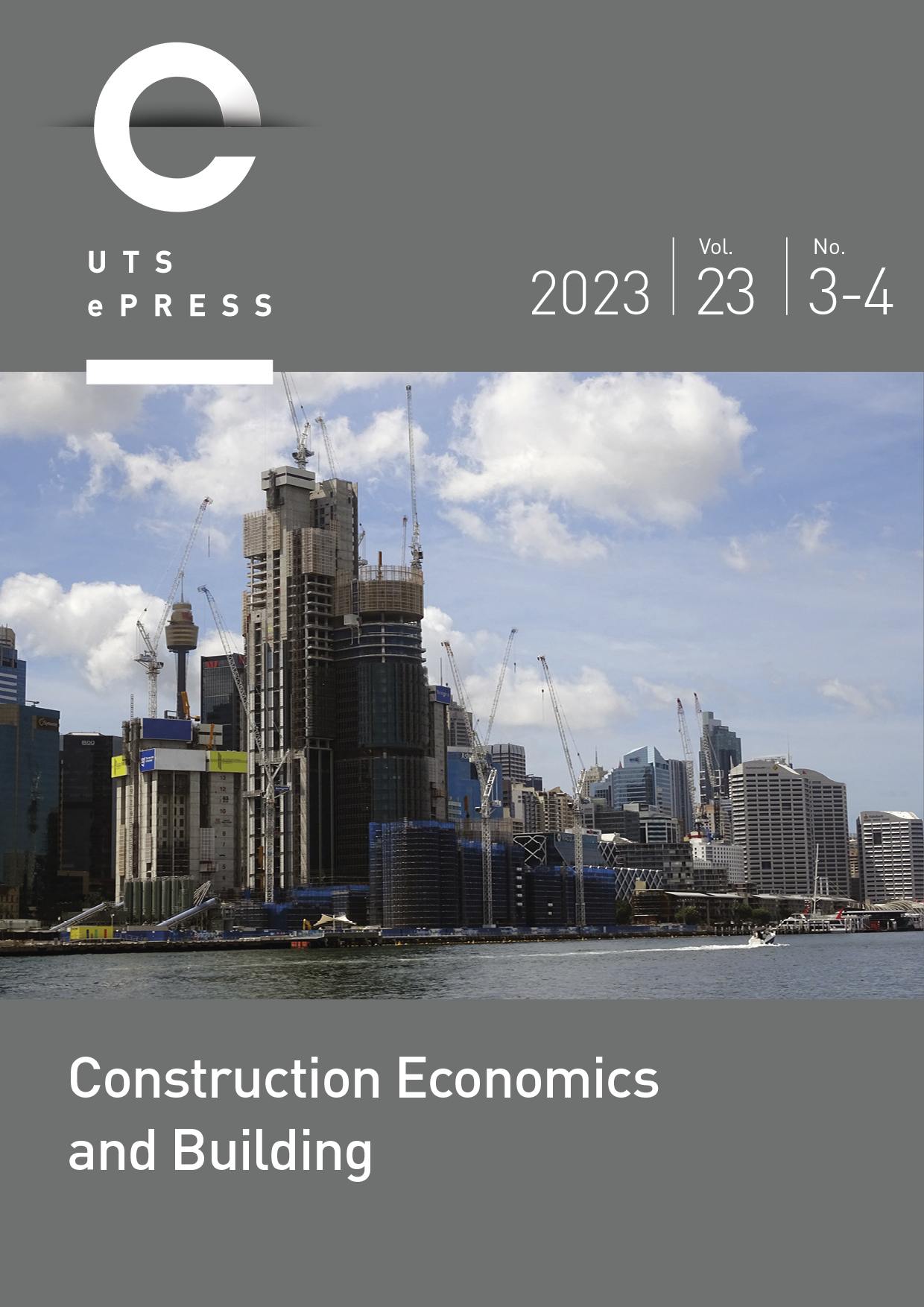Mixed-method approach to the evaluation of rework provisions within general contract conditions
Main Article Content
Abstract
Rework in construction contracts is an interesting topic as it influences contractual claims and disputes. Changes in design, work scope, and construction turn into rework and affect the contract sum, the project completion date and project performance. Thus, clear responsibility to manage rework is essential for construction contracts. Contractual rework provisions are difficult to trace as they are written indirectly or in a complex context. A well-defined contract with clear responsibilities before the project commencement will safeguard the contract from unforeseen circumstances. In this study, the stipulated provisions related to the causes of rework are reviewed and analysed in New Zealand standard form of contract. The research uses a mixed quantitative and qualitative method for data collection and analysis. This paper collects a list of rework causes, assesses each rework cause in the general contract conditions, and explores relevant rework clauses of NZS3910 contract. The study revealed five significant causes of rework that have been addressed in the contract conditions. Further investigation into the reminder causes during contract negotiation enables contract parties to manage their obligations under rework events. Properly addressing the causes of rework in the contract conditions improves the overall project performance and reduces contractual claims and disputes.
Article Details
Section
Authors who publish with this journal agree to the following terms:
a) Authors retain copyright and grant the journal right of first publication with the work simultaneously licensed under a Creative Commons Attribution License that allows others to share and adapt the work with an acknowledgement of the work's authorship and initial publication in this journal.
b) Authors are able to enter into separate, additional contractual arrangements for the non-exclusive distribution of the journal's published version of the work (e.g., post it to an institutional repository or publish it in a book), with an acknowledgement of its initial publication in this journal.
c) Authors are permitted and encouraged to post their work online (e.g., in institutional repositories or on their website) prior to and during the submission process, as it can lead to productive exchanges, as well as earlier and greater citation of published work (See The Open Access Citation Advantage Service). Where authors include such a work in an institutional repository or on their website (ie. a copy of a work which has been published in a UTS ePRESS journal, or a pre-print or post-print version of that work), we request that they include a statement that acknowledges the UTS ePRESS publication including the name of the journal, the volume number and a web-link to the journal item.
d) Authors should be aware that the Creative Commons Attribution (CC-BY) License permits readers to share (copy and redistribute the work in any medium or format) and adapt (remix, transform, and build upon the work) for any purpose, even commercially, provided they also give appropriate credit to the work, provide a link to the license, and indicate if changes were made. They may do these things in any reasonable manner, but not in any way that suggests you or your publisher endorses their use.
